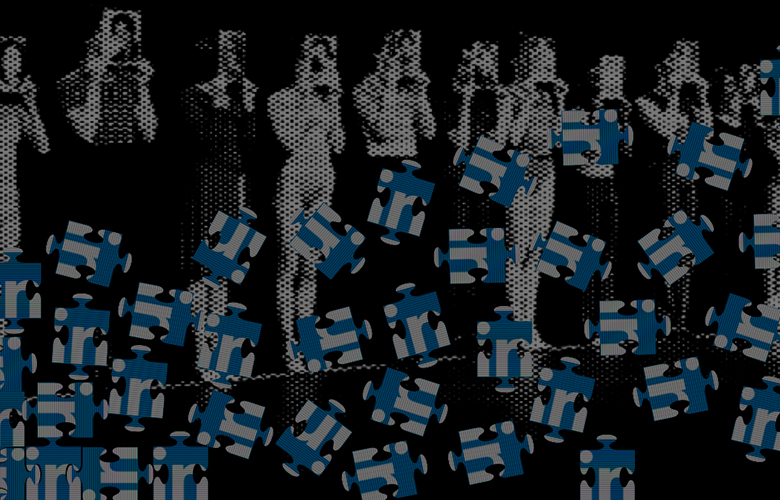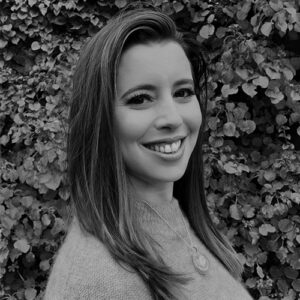
Matt: A recent NY Times article got some traction with this headline, Remember: What You Do Is Not Who You Are.
Alex and Matt: We (respectfully) disagree lol. In fact, we believe you ARE what you do…and that’s okay (because it can change).
Matt: When you’re a kid, adults ask you “So….what do you want to be when you grow up?”
When you grow up, adults ask you “So…what do you do?”
The tension between these two inquiries,”What do you want to be?” and “What do you do?” uttered YEARS apart lies at the heart of so much professional existential anguish. So, what if you are what you do, but that’s okay, because it can change? Understanding how our professional identity impacts our lived experience is necessary, particularly when we’re considering a job change, or career pivot. When we possess this self-knowledge, we are better equipped to engage in the actions that will help us craft a new professional brand identity to drive our search.
Alex: “Identity” in its truest form is the color grey, yet when we engage with conversations and content about it there’s always a debate attempting to persuade us to visualize it in black (professional identity) or white (personal identity).
I don’t believe it’s possible to separate the two. How can you?
If you have children, you don’t stop being a parent the moment you step into work. Your occupation, regardless of whether you’re proud of it or not, doesn’t cease to exist when you’re in personal settings.
Matt: Why are we hesitant to acknowledge how pervasive our professional identities are? Why resist how our work environments, our co-workers, our commute, our labor impacts our lives, our relationships and our health in a very real way? We can’t help but identify with what we do, because it makes up a significant portion of our lives. It influences how much time we have to commit to anything outside of work. It informs our network (both professional and personal). It actually changes our brains and bodies. As a fitness instructor, I worked out more and my body changed accordingly. Dancers and musicians, like athletes, know intimately how their profession impacts their physical body. Many people negotiate repetitive stress injuries, another example of how our job choices impact our health.
Telling people NOT to identify with what they do causes unnecessary anxiety and drives a significant piece of the 38 billion dollar global personal development industry. Do we really need another workshop on how to achieve work/life balance?
Alex: We can’t avoid identifying with what we do for work. We spend a significant amount of time with our co-workers and in our work environments. As a result, perhaps more than we’re willing to admit, work does shape our behavior and how we’re perceived.
Matt: Most Americans will spend 90,000+ hours at work. That’s close to 12 years, or 1/4th of our adult lives! When I think about the 12 years I spent in school (elementary, middle and high school) I can begin to frame the impact 12 years had on me: how those 12 years determined who my friends were; what activities I pursued; the skills I developed; the strengths I cultivated; the traumas I navigated. If I’m acutely aware of how those 12 years affected my emerging identity, then what’s the significance of our working lives on our adult identities? It’s substantial! Dr. William Braun is a clinical psychologist and my friend, so I asked for his take on professional identity:
“Who doesn’t define themselves by what they do? It’s part of what we do, what we are. It’s American.”
He said during this past year, if he wasn’t seeing patients, he would’ve completely lost himself. Being a psychologist gave him a strong sense of purpose. “If I didn’t have that to do I would’ve lost a sense of who I was. It structured the pandemic and got me through it.” His professional identity as a psychologist literally kept him sane.
“How we spend our days is, of course, how we spend our lives.” -Annie Dillard
Alex: I like the idea of comparing our identity to an iceberg (cliche, I know, but hear me out).
We all know how it goes, what we see is just the tip of what lies beneath the surface. It’s a frustrating concept for most of us because what lies beneath the surface tends to include the personalities, talents, desires and values that resonate with us the most. If the most authentic parts of ourselves reside beneath the surface of what others see, how does that impact their perception of who we are? Do their perceptions matter?
According to Oxford Languages, “perception” is defined as “a way of regarding, understanding, or interpreting something; a mental impression.”
Those mental impressions do indeed matter. We can’t experience opportunities without the assistance of our professional and personal networks. In order to receive opportunity offers, someone needs to present them to us. If you’re the only one aware of what your truths are, you won’t be offered opportunities that match those truths.
If you’re in a less than desirable work role and you want to make a change, where do you start? You engage in activities that influence a new professional identity. It’s okay to say “I am currently X, but I am transitioning into Y.” Take the necessary steps towards making Y the focal point and move X below the surface.
If we want to authentically walk in the shoes of the identity we desire for ourselves, we are obligated to engage in activities that support our desired identities. How aggressively you do this depends on your circumstances and the resources that are available to you. Someone with the financial means to take a sabbatical or training program to pursue their goals could potentially reach their Y quicker compared to the individual who has to continue working their X to support themselves and/or their family.
Regardless of your circumstance, everyone has the ability to control what we want people to see.
Matt: Our job actually does constitute a significant part of our identity. Deny that and we’re setting ourselves up for ongoing psychological distress. So why not accept that we are what we do…BUT what we do will change—and we’ll change with it. As Dr. Braun says, “We are a multitude of things. What we do can change. Our identities are malleable.”
Ali Wright Photographs Theatre Staff Working As Key Staff during COVID
The Essential Tool Every Entertainment Industry Pro Needs To Navigate Their Pandemic Pivot


Alexandria Bellivan is a career development specialist with several years of experience working with entertainment and performing arts professionals of all disciplines at The Actors Fund. Shortly after graduating with a degree in Sociology she pursued her career in workforce development and obtained her Master's degree in nonprofit management. Her mission is to help creatives gain the confidence and knowledge needed to navigate their careers whether it be to pursue their careers in the entertainment industry or to secure meaningful sideline opportunities. In addition, Alexandria's devotion to the arts goes beyond her work at The Actors Fund. She currently serves on a junior board for Opening Act, a nonprofit organization that offers no-cost theatre programming to NYC public high schools, participates in podcast interviews and speaking engagements geared towards the arts to raise awareness about the challenges creatives encounter when navigating their careers.
Read Full Profile© 2021 TheatreArtLife. All rights reserved.

Thank you so much for reading, but you have now reached your free article limit for this month.
Our contributors are currently writing more articles for you to enjoy.
To keep reading, all you have to do is become a subscriber and then you can read unlimited articles anytime.
Your investment will help us continue to ignite connections across the globe in live entertainment and build this community for industry professionals.